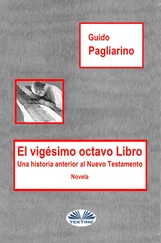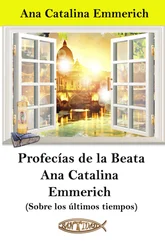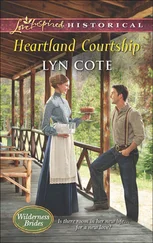I sat on the damp soil to catch my breath. Under the garden glove, my right index finger hurt from clutching the weeding fork. Some dandelions I had pulled a few days before were showing again. Had I missed them or did they normally sprout back so quickly? Tonight I would look that up in the Judge’s “Useful and Noxious Weeds of North America.” To get McCabe to sit in majestic judgment of herself would take time. Weeks, maybe months. We had arrived in Elmira at the end of August. It was now mid-September. I wanted to wrap it all up by Christmas.
Remembering that Indian summer day, now that frost has begun to cover my outer shell and I have lost all feeling in what used to be my right hand, I regret having given so much thought to the form of McCabe’s death, and so little to the substance. With reflection, I may have realized that I had two irreconcilable desires, each opening a distinct path: one, to get McCabe to acquiesce to her death; the other, to give Elmira the fresh blood it was thirsting for, so it would finally let go of me. The first path could be taken only by someone born without the Elmiran blood curse (like McCabe herself, but then, McCabe would not have despised me if I had been a McCabe, nor Bebe rejected me—a paradox I did not grasp that balmy afternoon while struggling with the weeds); the second path of indiscriminate bloodshed was open to anyone capable of decisive action, whether human or mutt. I thought myself free—by choice, if not birth—but indecisive. So I took the first path thinking that it would lead to the second, like those streets that change names without one having to turn a corner. It didn’t. In the end, my Nuremberg followed its languid course in the Judge’s old house, while Elmira tired of waiting with gaping jaws for the fresh meat promised to her. Oh, unforgiving, wrathful Elmira.
McCabe spent most afternoons in the kitchen, of all places, sunglasses atop her head, Dolce Vita style, sausage frame encased in D&G one day and Missoni the next. Unafraid to burn or stain her rich rags, she baked and baked. Her signature creation, her only creation, in fact, was a bourbon prune cake. She baked large quantities for the Church of Saint Glykeria, Martyr at the bottom of the Hill, which Petrona delivered every Friday evening on her way home in a fancy basket covered by a red-checkered napkin. Mrs. Crandall, the appetizing head church lady, returned the empty basket on Sunday afternoons. McCabe opened the kitchen door for her the first time to bask in her gratitude, but did not invite her in. Mrs. Crandall left dazzled and thirsty for another glimpse of the celebrated SoHo art merchant. By the time she got home and reported back to her crone troops in lengthy phone calls, her gratitude had turned into abject adoration. Reports of the reports reached me the next morning via Petrona, who had heard the increasingly fantastic accounts, in Spanish, from the spic delivery boys who brought in our food from the state capital’s only fancy grocery store. Their pit stops at the kitchens of the town’s petty notables provided them with a rich source of gossip. At my request, we did not patronize the local Wal-Mart, the only other source of food outside the state capital: I’m a picky eater and McCabe, who couldn’t care less where her food came from, was nevertheless swayed by my warning that her standing in Elmira would suffer if she was thought to eat from the same trough as the hoi polloi.
McCabe was so thrilled with my English translation of Petrona’s Spanish version of the white gentry’s phone follies, that she made me retell it over and over until my voice got hoarse. Each time, she demanded more details. These I offered, not from Petrona’s account, but from the bottomless pit of my intimate and anthropological memory of the Elmira massas. McCabe laughed at my stories the way people laughed when they knew how to laugh, and writers knew how to write them laughing: so hard that tears streamed down her cheeks, so hard that her belly rolls, arm rolls, and jowls gleefully shook, with a laughter so stentorian that it rattled the Judge’s window panes. I can still hear her laugh. Accurately, now that my ears have fallen off, like my nose and all other bodily protuberances, and my memory is cleansed of self-pity. McCabe wasn’t laughing at Elmira’s rulers; she was laughing at me still laughing at them.
From that moment on, as Señora Mirtila, the housekeeper, I was charged with opening the door for Mrs. Crandall, retrieving the basket, and offering a different excuse for McCabe’s absence in thickly accented English each week, so it would whet her appetite. One week McCabe would be in bed with a migraine, the next she’d be en route to Antarctica, the next she’d just been called to the White House (this one, which I repeated occasionally, always made Mrs. Crandall gasp).
Mrs. Crandall was also the head librarian in Elmira’s public library, the only one still standing in the state. It always embarrassed me to see her behind the main desk, with her curvaceous body badly tamed by dresses whose soft, clingy fabric belied their severe cut. She should have worn tailored suits, preferably pantsuits with longish jackets, to hide her provocative flesh. It would not have been a solution, just an improvement on the current, intolerably voluptuous situation. A black burka would have only increased Mrs. Crandall’s carnality: it was as bad as that. When the Caliphate finally reaches Elmira—sooner than we think—she will be the first to be stoned to death. I could see their viewpoint, while naturally abhorring it. Her presence among the books was a provocation. I dared not think of her at Saint Glykeria, Martyr, although Byzantine churches have always felt like boudoirs to me. Was Mrs. Crandall unaware of the power of her flesh? Were the other librarians? The church people? Mrs. Crandall’s rectitude was so unimpeachable that no one dared acknowledge the copulating elephant in the middle of the room, which was her flesh. However, the men at the faded polo club bar must have exchanged at least subliminal messages as she walked by, no words, but maybe a raised eyebrow, a batted eyelash, given that Mr. Crandall was old Elmira, and, as such, chairman of the club’s board, and bank president with life or death power over their mortgages. It must have been a trial for Elmira’s white rulers to live with this unmentionable thing, Mrs. Crandall’s carnality. They’re not easy, the lives of our rulers, even in their present, shrunken conditions. On the other hand, I bet the town’s spics, female and male alike, talked freely about Mrs. Crandall’s bountifulness. We’re that crass and uneducated. Our lack of discretion and boundaries will either hasten the triumph of the Caliphate (the backlash theory), or altogether prevent it (the sensual overflow theory). I take no sides since both sides abhor me, the homo vermin. I’m as embarrassed by us spics as by Mrs. Crandall, but the white townspeople’s code of silence repulses and frightens me. It courses underground, so no one knows what foulness it carries. Spic sex babble, equally repulsive, is at least out in the open for all to see.
Even now that I was back—thirty years older, wiser, richer (in strings to pull and big words to use, if not cash)—white Elmirans, rich or poor, still scared me. I couldn’t get into their skins, guts, or brains. Uncomfortably, like someone trying on a coat that’s too small or too big in an overheated store, I nevertheless managed to penetrate most of Spicdom, and on certain, narrow wavelengths, even most of your blacks and Orientals. Around white Elmirans I felt gaseous while they seemed solid and tri-dimensional, or vice-versa. Physically different, as in Law of Physics, not flesh.
Against my will, then, I was often forced to be near to Mrs. Crandall’s disturbing buttocks. It would have been out of character for Señora Mirtila to want to read Turgenev’s complete works in English, as I did. So I cleverly pulled out the yellowing library index cards for all of Turgenev’s novels, shuffled them by order of desire from top to bottom, and took the deck to a horrified, but bravely collected Mrs. Crandall. Señorita Maké wants me to bring her two of these each time, I said in laborious Mirtila English. Mrs. Crandall tried not to stare at the flowery peasant scarf on my head, but its visual pull was irresistible. She stood up, shaking her head to regain control, then took me to the library’s humid cellar where all the old books no one read anymore had been relocated after a flood. Only the new ones everyone craved (the Harlotquins, the astrology and demonology self-help manuals, and the Nostradamuses) were displayed on the safer main floor. Below, we stood silently before the hand-carved oak shelves holding exquisite nineteenth-century editions of the canon of our dying civilization: The Alexiade and Tirant lo Blanc and the complete Hawthorne, Justinian, Dostoyevsky, Saint Theresa, Melville, Prodromos, Balzac, Cervantes, Akindynos, and so on, awaiting the next flood to destroy them. “Here,” Mrs. Crandall said in a soothing, nightingale voice, pointing at the Turgenevs. “We will come here every time to find the books Miss McCabe wants,” she added, enunciating each word carefully. She then smiled the pained smile with which white Elmirans, who are very good-hearted, show compassion for the less fortunate.
Читать дальше












